20 Best Automation Testing Tools in 2026

Sorry, there were no results found for “”
Sorry, there were no results found for “”
Sorry, there were no results found for “”
There was a time when manual testing was the norm. It was a tedious and time-consuming process that often led to errors and delays.
However, software development and parallel test execution processes have constantly evolved over the years.
One of the most significant transformations I’ve witnessed has been the rise of automation testing tools. It is fascinating how an automation tool can streamline the testing process and improve the overall quality of our products.
In this blog, the research team at ClickUp and I have combined the top 20 automation testing tools, curated based on their performance, user-friendliness, and widespread adoption.📝
When it comes to choosing the right automation testing tools, there are several key factors to consider:
I’ve found that automation testing tools are key to improving software quality and speeding up development.
With so many automation testing tools available, it can be overwhelming to choose the right one. Let’s dive in and explore what’s out there to enhance your testing process! 👇

ClickUp is an all-in-one project management tool for everything from product planning to software development. ClickUp Agile Project Management Software provides structure and organization to end-to-end software development.
It’s a top agile testing tool that allows you to create sprints, assign tasks, and track their progress in real time. Let’s explore its feature set together.
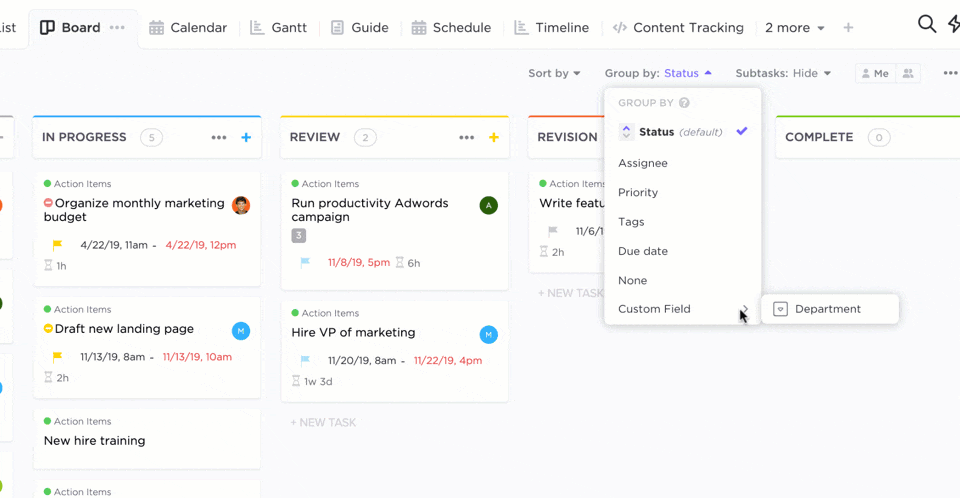
The ClickUp Board View is a staple of agile project management methodologies. It lets you visualize your test workflow by dragging and dropping tasks between stages like ‘To Be Tested,’ ‘In Progress,’ and ‘Passed/Failed.’
This setup provides a clear overview of each task’s status, making it simple to identify bottlenecks and prioritize workloads effectively. Further, the drag-and-drop functionality in Board View also enhances the user experience, allowing team members to move tasks seamlessly between stages as they progress.
The best part? Board View allows for the integration of task details, including assignees, due dates, and comments.
A centralized approach to task management helps teams maintain open lines of communication, keeping everyone informed about progress and any challenges that may arise during testing. That’s not all.
ClickUp for Software Teams acts as the brain of your continuous testing process. It’s great for bug tracking and management. You can easily create detailed bug reports, assign them to developers, and track their progress through the development lifecycle.
Plus, customizable workflows let you tailor the bug-tracking process to your team’s specific needs. ClickUp also offers a variety of templates that can be customized to fit your specific automation testing needs.
The ClickUp Bug & Issue Tracking Template provides a ready-made framework to boost visibility and collaboration among testing teams, helping you efficiently manage the complexities of bug resolution.
The custom intake forms for software teams allow seamless bug submission, ensuring all necessary details are captured upfront.
This template enhances cross-functional collaboration by bringing teams together on a centralized platform, ensuring everyone is updated on the status of bugs and issues. As communication improves across teams, product delivery becomes faster and more efficient, leading to higher overall quality.
The ClickUp Test Management Template makes your testing process smooth and organized. It gives you a simple way to plan, track, and evaluate every part of your testing journey, with test scenarios, edge cases, and runs in one place.
You’ll have a clear view of progress, making it easy to spot issues and see results at a glance. The visual layout helps you stay on top of everything and make quick decisions when needed. Plus, the template makes it easy for your team to collaborate so everyone can stay in the loop on bugs, issues, and feature requests.
Managing test schedules and tracking results over time becomes effortless. With this template, you stay on top of user feedback and test outcomes, which is key to improving your processes.
Additionally, the ClickUp Test Report Template helps create reports to summarize test results, identify bugs, and provide insights for future iterations. Further, the ClickUp Test Case Template provides a structured framework for outlining individual test cases, including detailed steps, expected outcomes, and pass/fail criteria.
📖 Also Read: [New Integration] LambdaTest + ClickUp

Selenium is one of the top modern QA testing tools today. It’s a powerful, open-source toolkit that has become essential for automating web applications across different browsers and platforms.
The tool’s versatility and extensive community support have made it ideal for developers and testers worldwide. It also has a browser extension, ‘Selenium IDE,’ which allows for recording and playback of browser interactions.
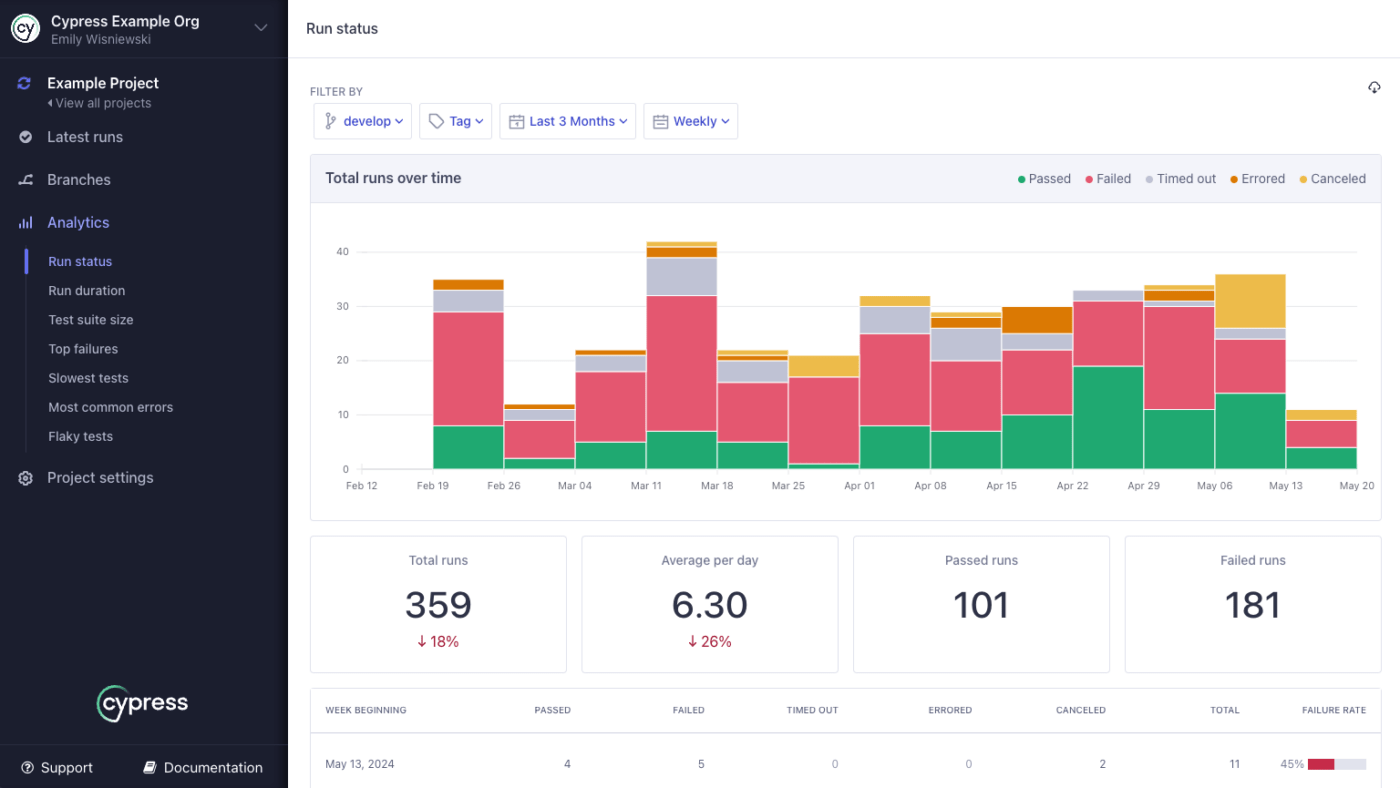
Cypress is a modern JavaScript-based end-to-end testing framework that has gained significant popularity due to its simplicity, speed, and developer-friendly approach. Unlike traditional testing frameworks, Cypress runs directly in the browser, providing a more intuitive and efficient testing experience.
💡 Pro Tip: You can automate software releases using continuous deployment tools, which automatically deploy code changes to production. This removes manual steps and reduces delays, ensuring a faster and more efficient release process.
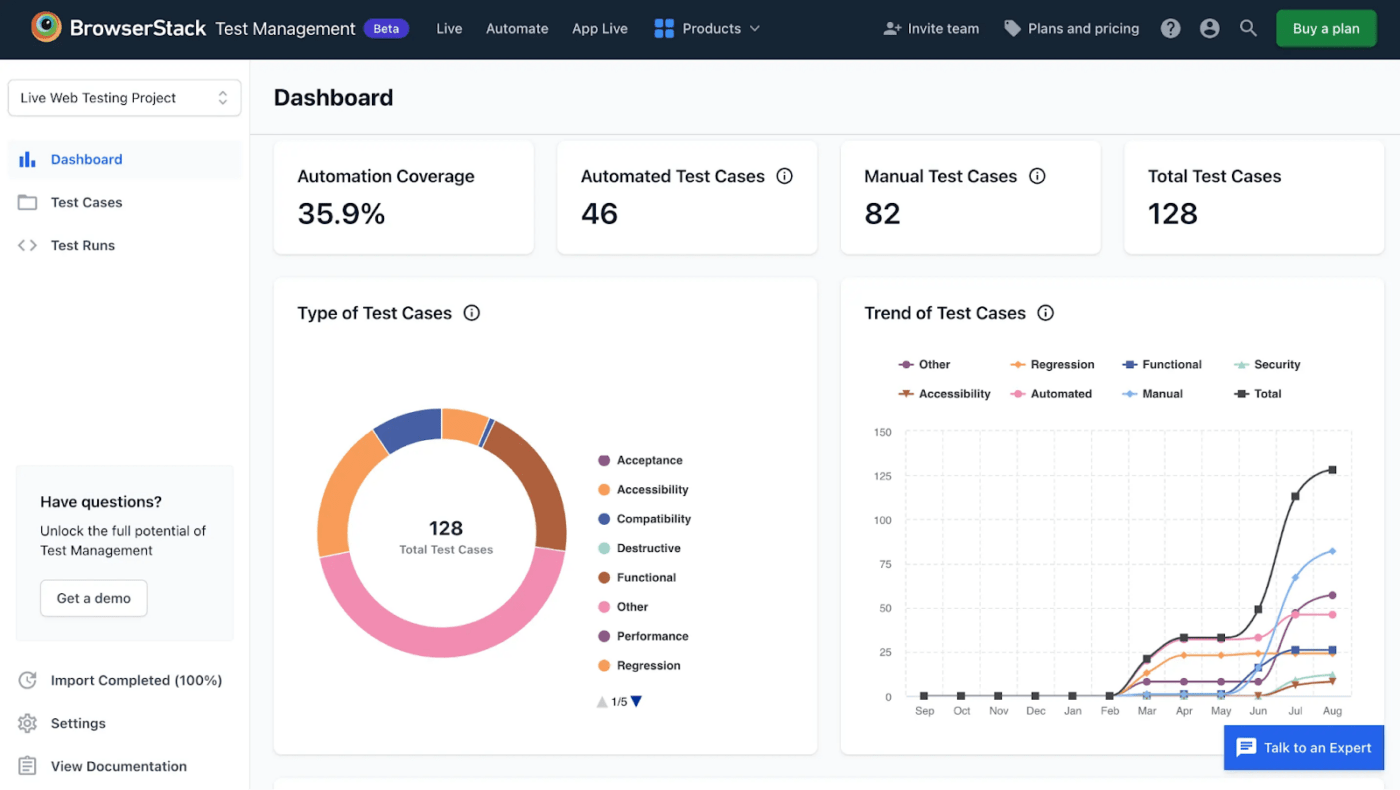
BrowserStack Automate is a cloud-based testing platform. It provides access to a wide range of real devices and browsers, enabling you to test web applications across different configurations and environments.
The platform supports multiple testing frameworks, making it easy to integrate with your existing workflow. Additionally, its real-time debugging features allow you to identify and resolve issues quickly, enhancing the overall quality of your web applications.
Web testing
App Automate
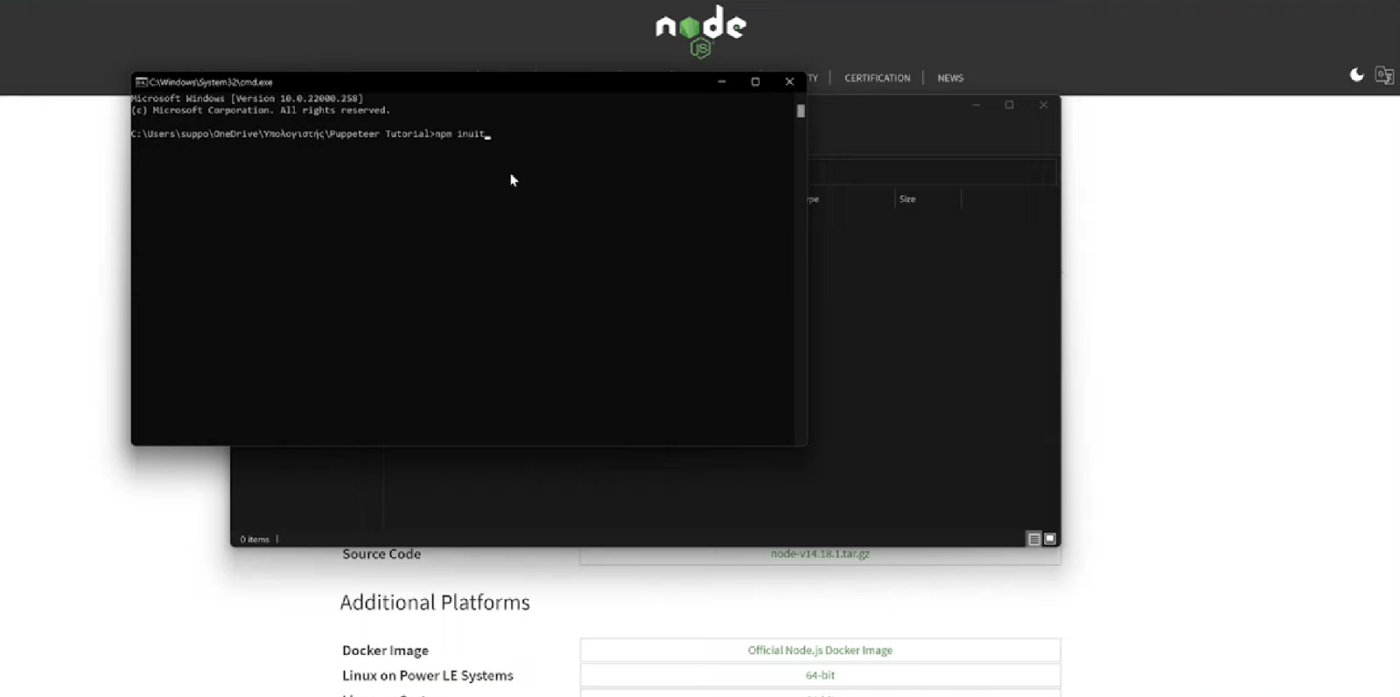
Puppeteer is a Node.js library that provides a high-level API for controlling headless Chrome or Chromium. It’s a powerful tool for automating web tasks and web application testing.
Moreover, Puppeteer excels in web scraping, enabling users to extract data from websites efficiently. With its ability to render dynamic content, Puppeteer can retrieve information from single-page applications (SPAs) that traditional scraping methods may struggle with.
Free to use
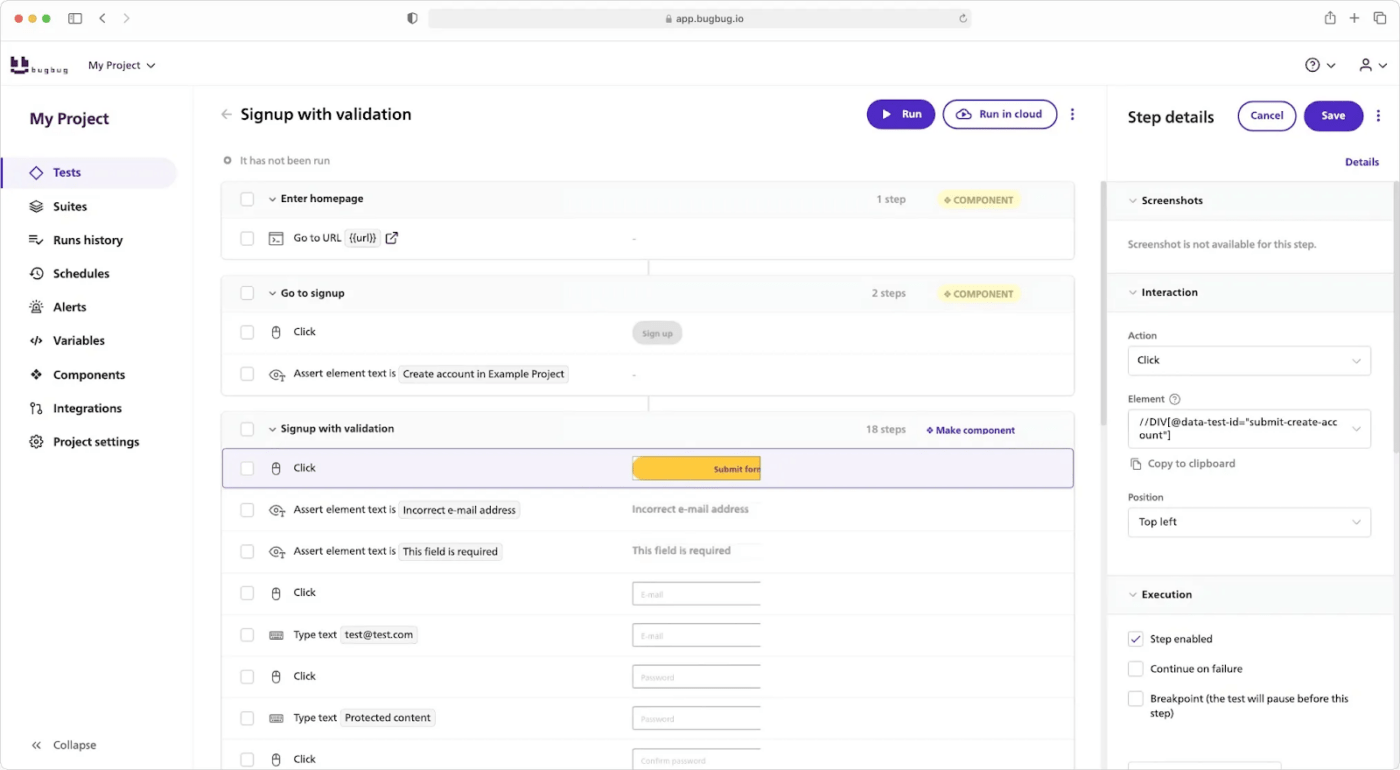
BugBug is a versatile bug-tracking software designed to streamline the defect management process for agile teams. With its intuitive interface and customizable features, BugBug assists teams in efficiently tracking, prioritizing, and resolving issues throughout the software development lifecycle.
👀 Bonus: Explore free bug report templates to simplify issue documentation and enhance communication.
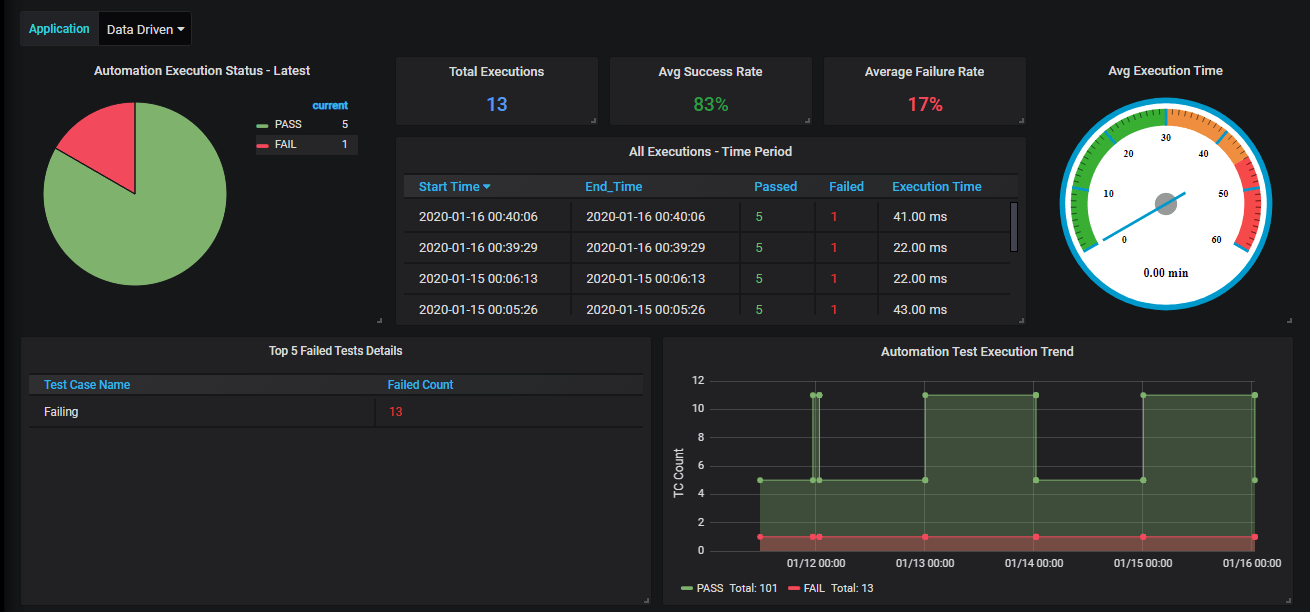
Robot Framework is a Python-based, keyword-driven automation framework that is widely used for acceptance testing, acceptance test-driven development (ATDD), and robotic process automation (RPA). Its simple syntax and extensibility make it accessible to both technical and non-technical team members.
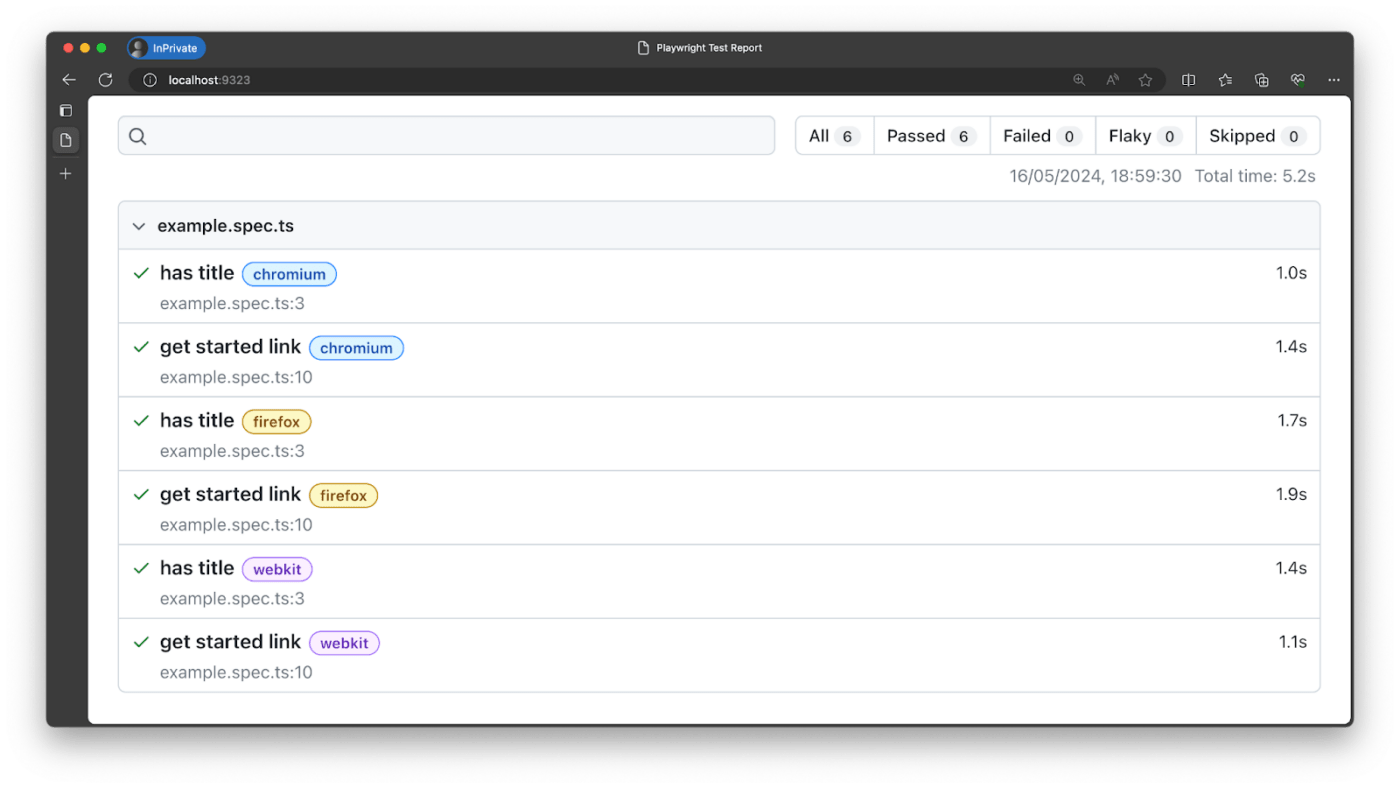
Playwright is a modern testing framework that supports web, mobile, and desktop automation, providing a unified API for cross-platform testing.
It’s designed to be fast, reliable, and easy to use. Additionally, its unified approach to automation and comprehensive feature set make it an essential tool for development workflows.
💡 Pro Tip: While automation is powerful, not every test case should be automated. Focus on repetitive, time-consuming, and high-impact tests while leaving exploratory testing and tests that require human judgment to manual testing.
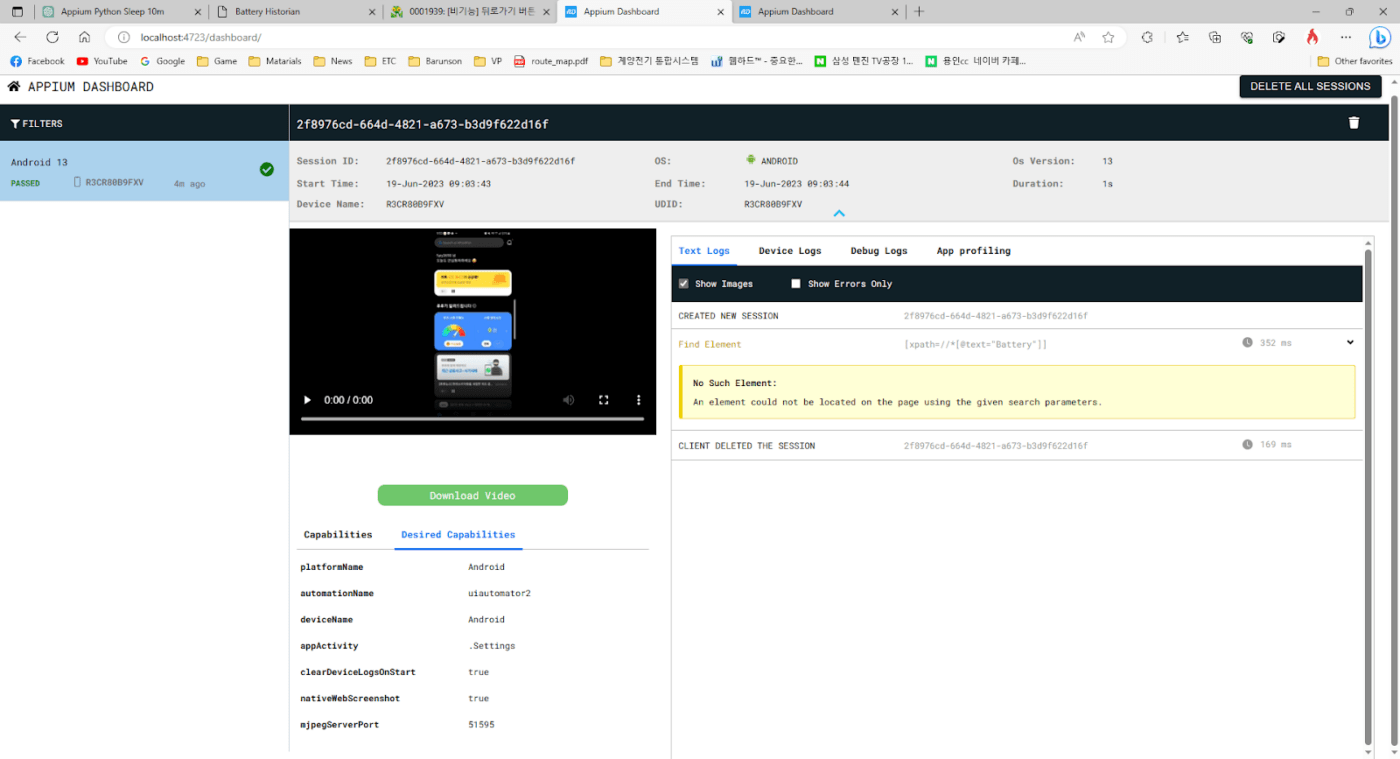
Appium is a versatile mobile automation framework that empowers you to automate native, hybrid, and web mobile applications across iOS and Android devices. You can create robust test suites to guarantee the quality and functionality of your mobile apps.
Free to use
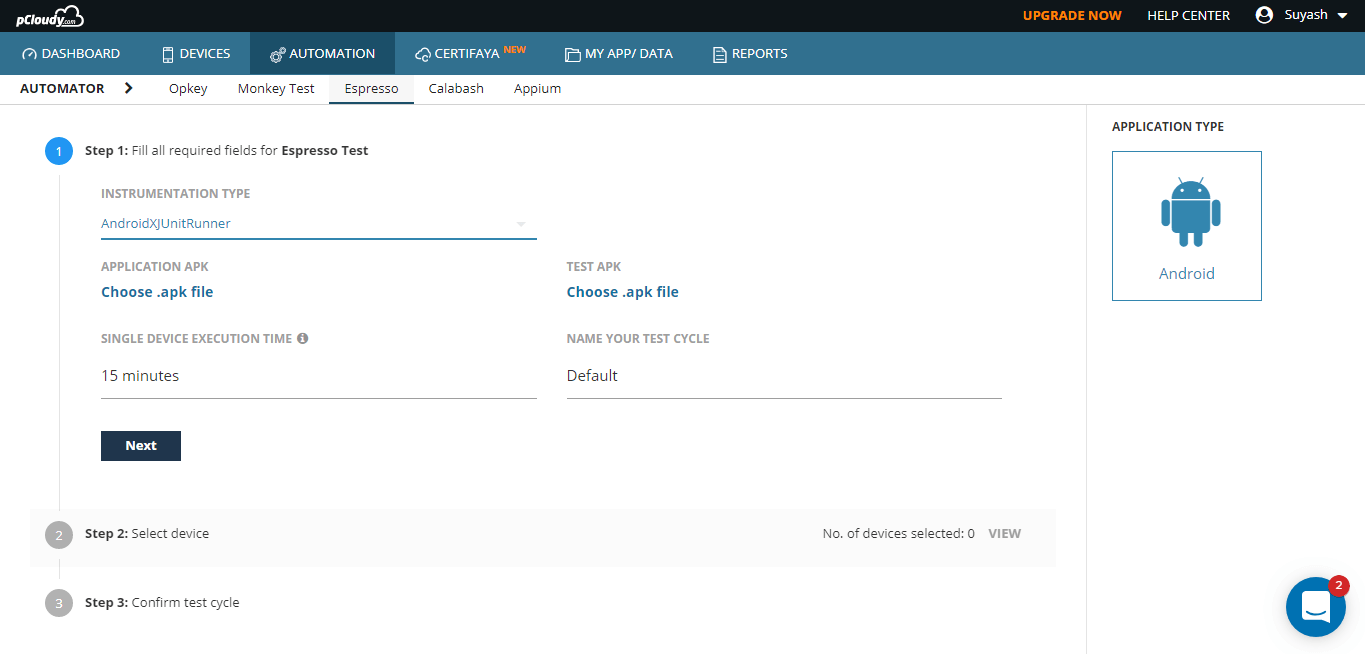
Espresso is a powerful and reliable testing framework specifically designed for Android applications. It provides a simple and intuitive API for creating robust UI tests, ensuring the quality and functionality of your Android apps.
The tool integrates seamlessly with Android’s testing tools, such as AndroidJUnitRunner and Gradle, making it easy to incorporate into existing development workflows. Its built-in support for assertions and matchers allows developers to validate UI states and transitions effectively.
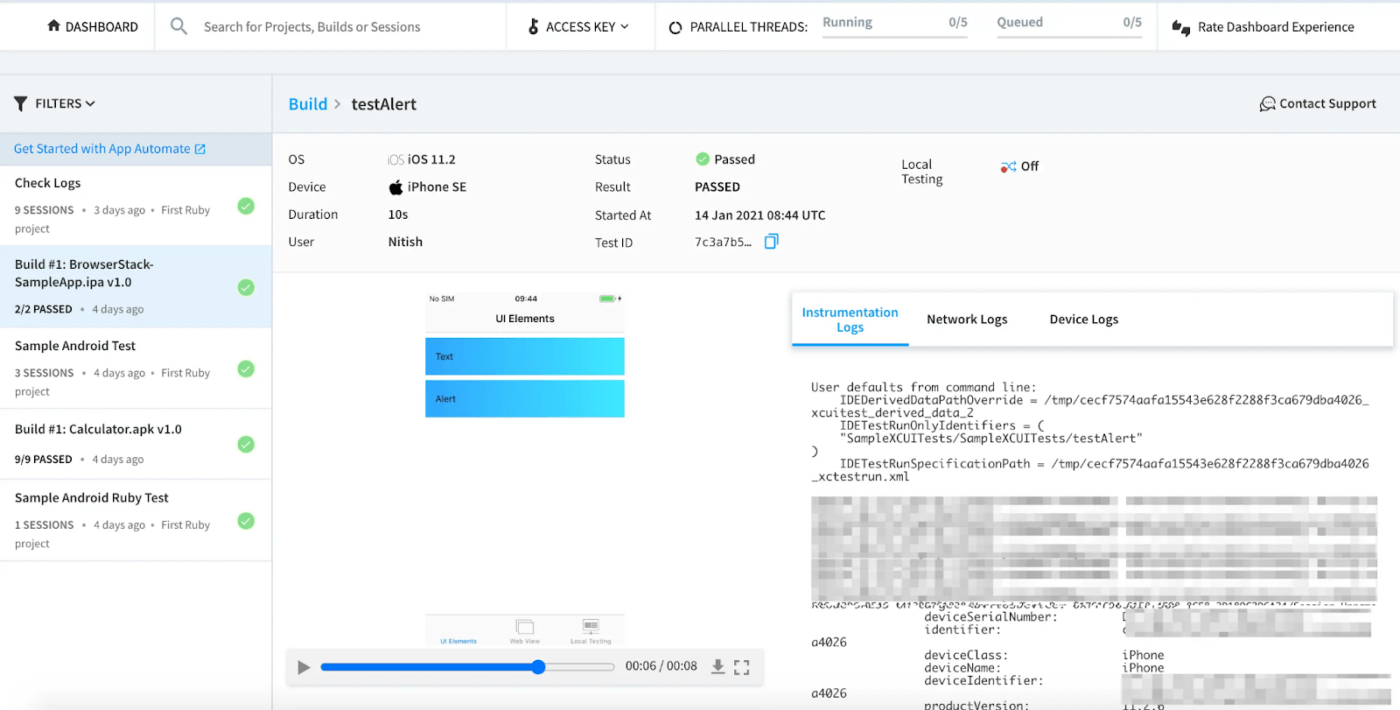
XCUITest is a powerful and reliable testing framework specifically designed for iOS applications. As a native testing framework provided by Apple, XCUITest offers deep integration with the iOS SDK, ensuring that your tests accurately reflect the behavior of your app on real devices.
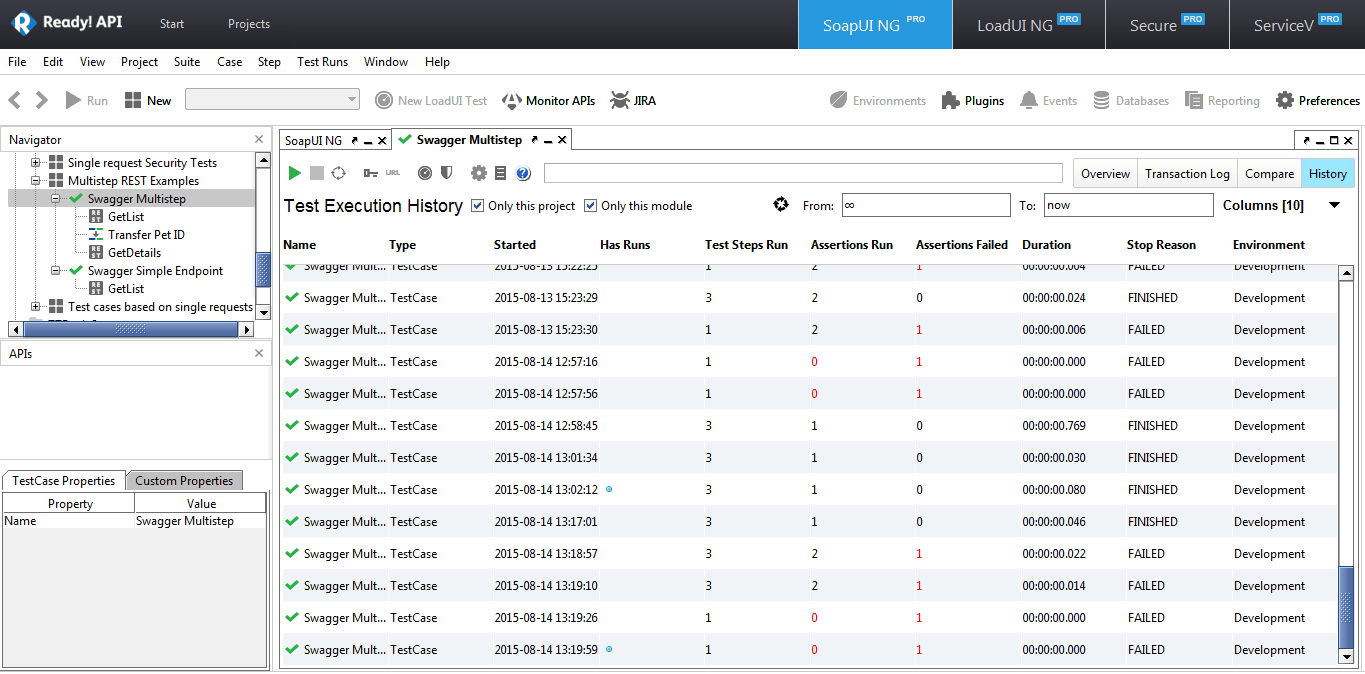
SoapUI is a powerful and versatile tool for API testing. It facilitates the creation, execution, and management of test cases for RESTful and SOAP APIs to ensure quality, reliability, and security.
SoapUI supports various testing types, including functional, performance, and security testing. This versatility ensures that teams can comprehensively evaluate their APIs under different conditions.
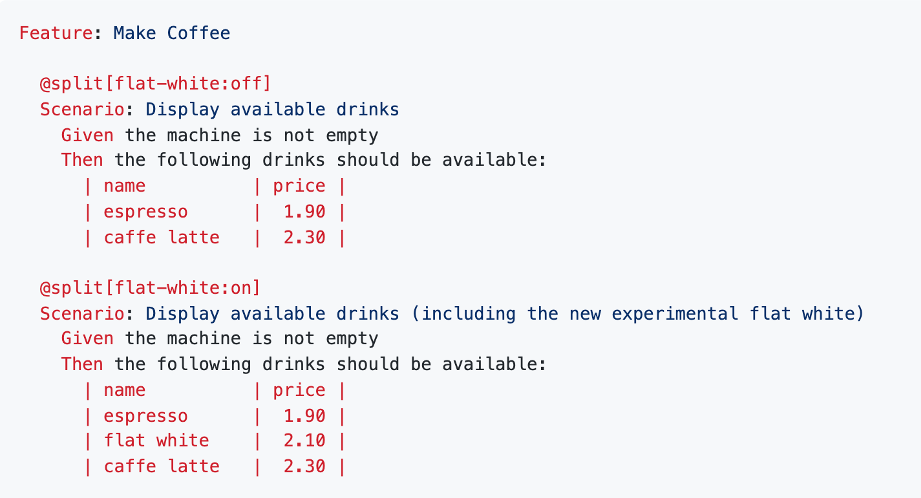
Like SoapUI, Cucumber is part of Smartbear. It is a BDD framework that helps bridge the gap between technical and non-technical stakeholders. It uses plain language descriptions of test cases, written in Gherkin syntax, to define the desired behavior of the application.
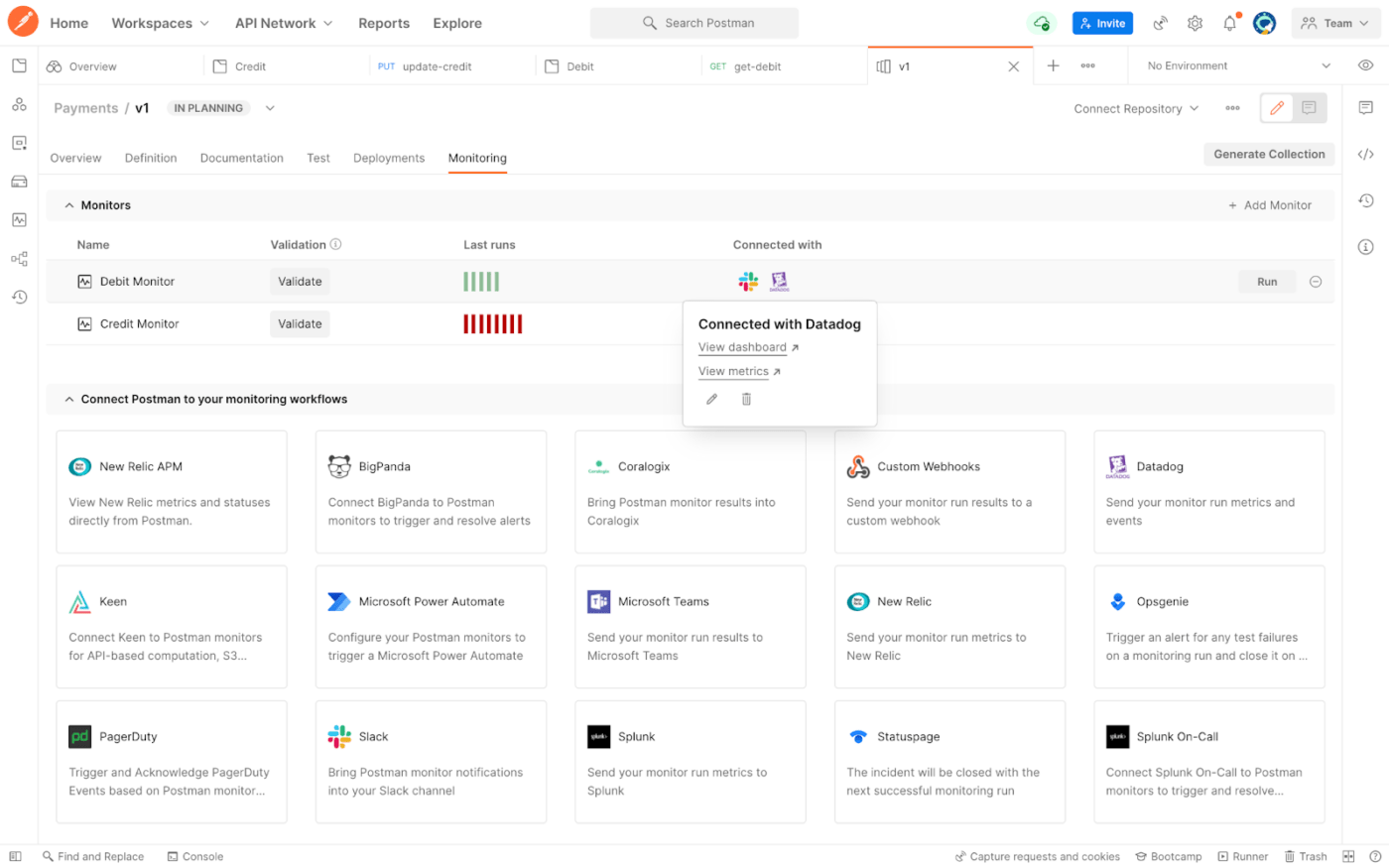
Postman is a versatile tool that empowers you to efficiently develop, test, and manage APIs. With its user-friendly interface and comprehensive features, Postman simplifies the process of creating HTTP requests, inspecting responses, and automating API testing.
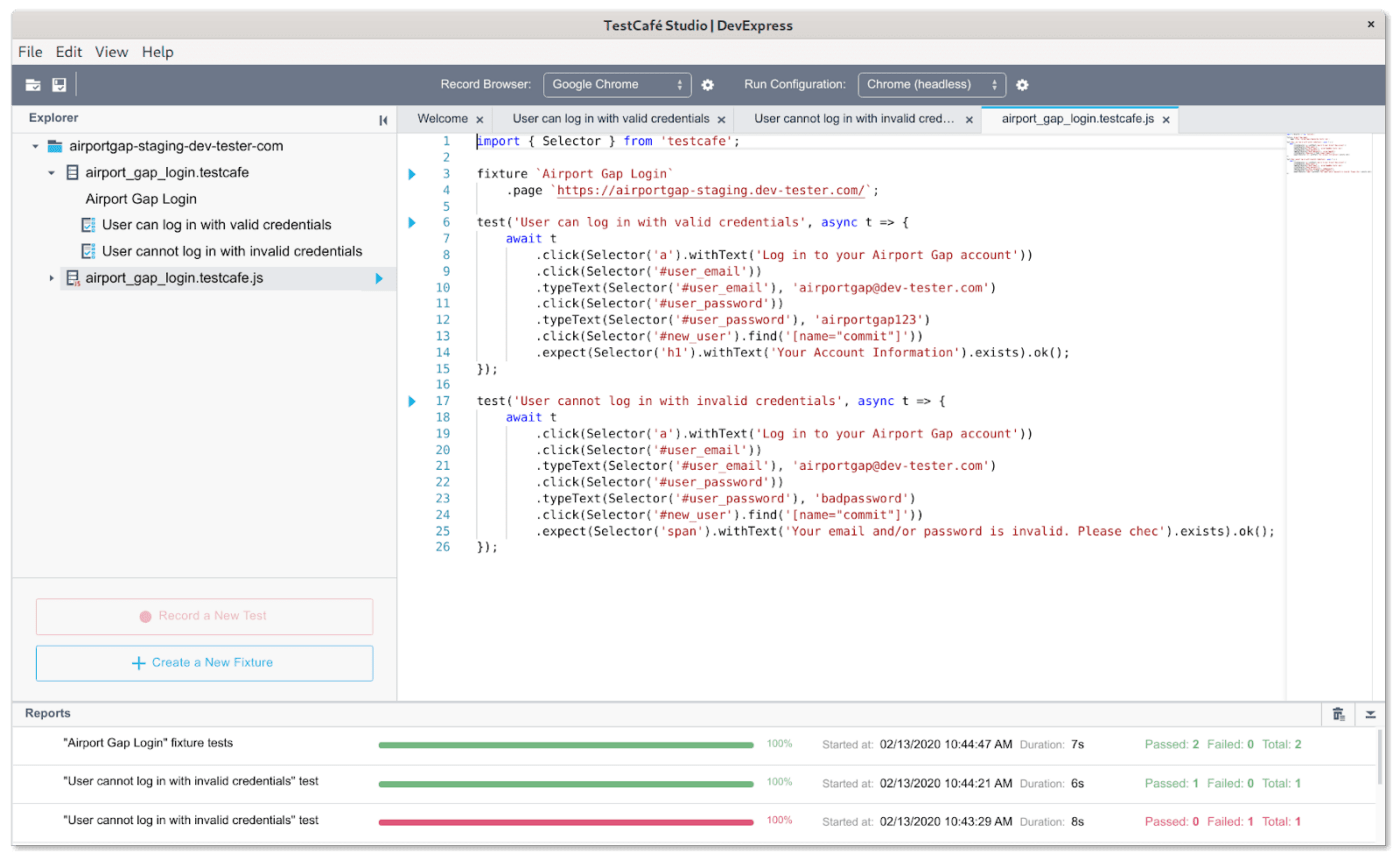
TestCafe is a powerful and efficient JavaScript-based testing framework designed to automate web applications across a wide range of browsers.
With its simple syntax, cross-browser compatibility, and robust features, TestCafe provides a reliable and efficient way of running automated tests to ensure the quality and functionality of your web applications.
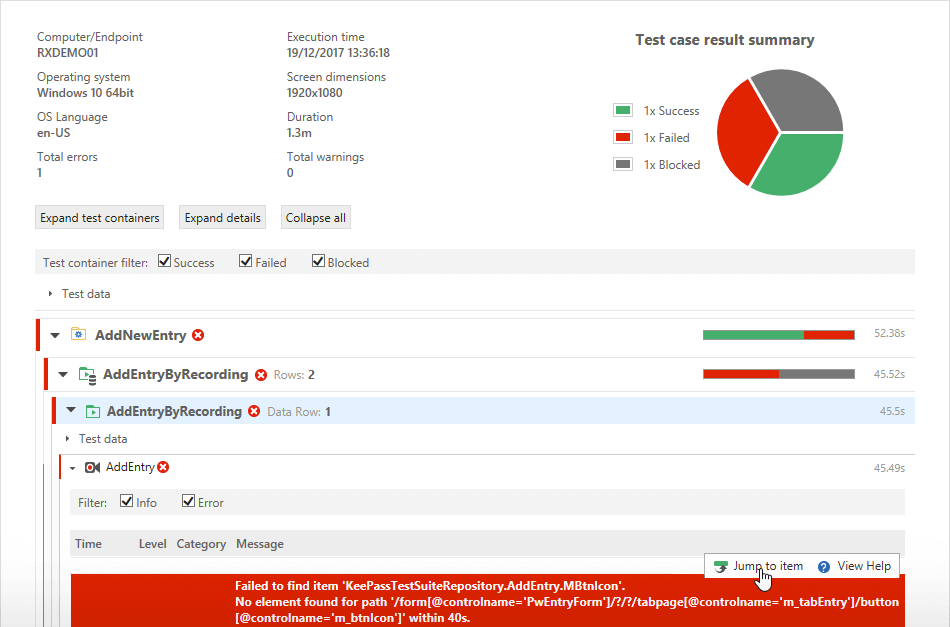
Ranorex Studio is a versatile test automation testing tool that empowers teams to efficiently test web, desktop, and mobile applications across various platforms. With its features, user-friendly interface, and support for other testing frameworks, Ranorex Studio provides a great solution for ensuring the quality and reliability of your software.
📖 Also Read: Types of Testing in Software Engineering
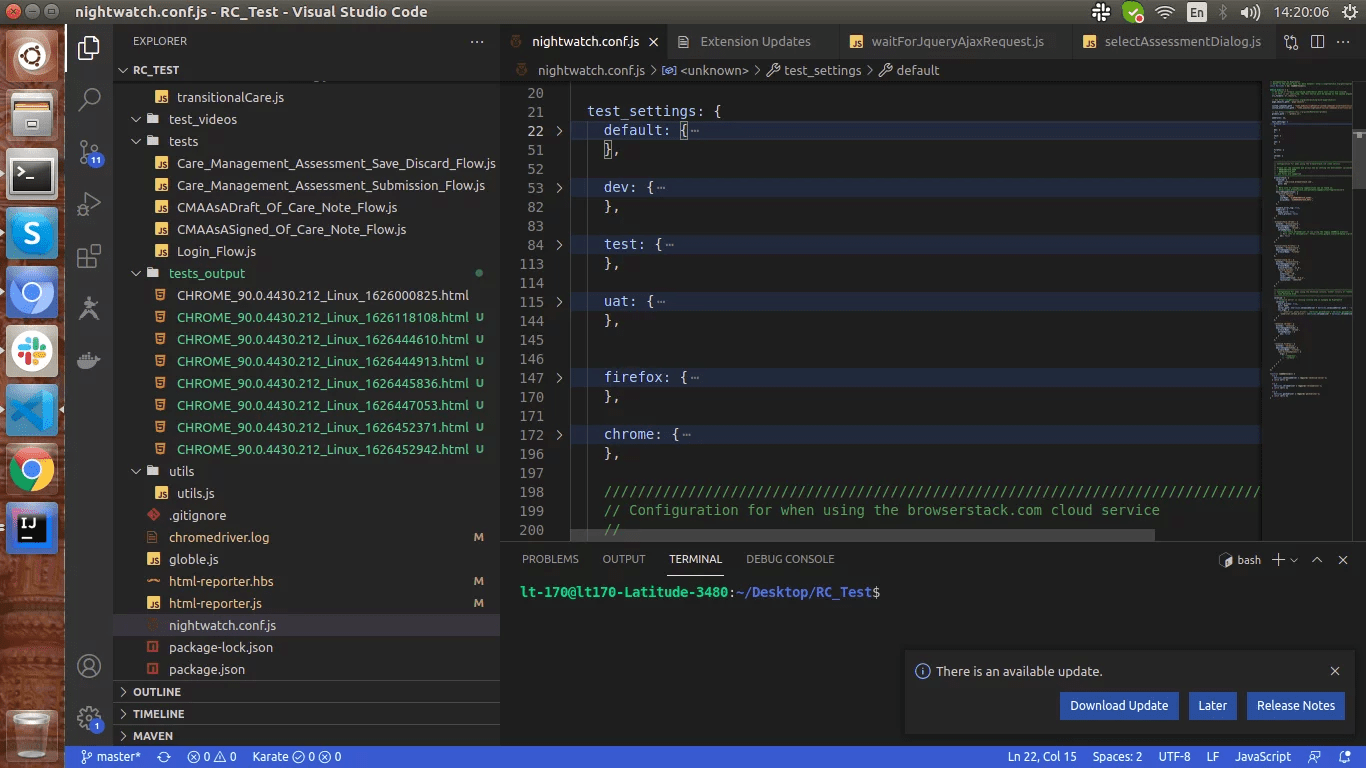
NightwatchJS is a Node.js-based end-to-end testing framework specifically designed for web applications. Among other automation testing tools, NightwatchJS offers a simple and efficient way to automate browser interactions and test the functionality of your web applications.
Additionally, the framework offers built-in reporting features that generate detailed test results, making it easier to identify issues and track testing progress over time.
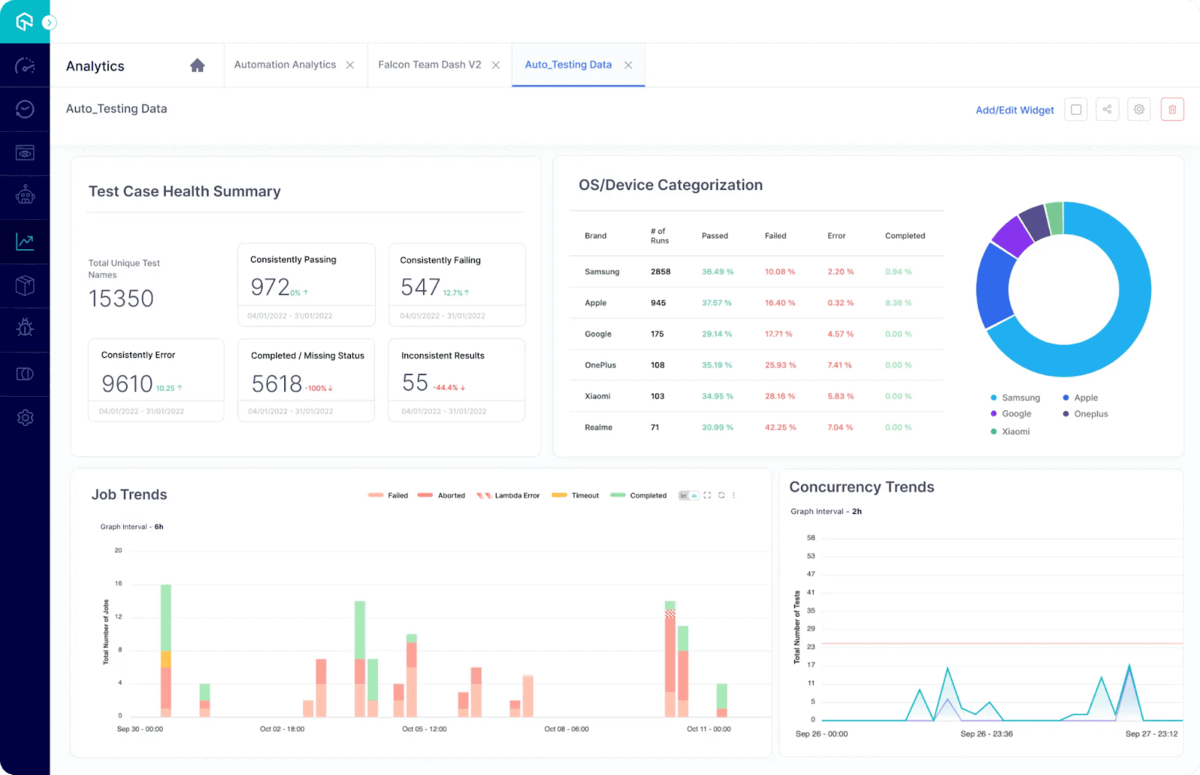
LambdaTest is a powerful cloud-based platform that provides a comprehensive solution for cross-browser and platform testing. It allows you to easily test your web applications on a wide range of real devices and browsers, ensuring compatibility and performance across different operating systems, configurations, and environments.
With its user-friendly interface and robust features, LambdaTest empowers organizations to deliver high-quality web applications that perform flawlessly across various platforms. Ultimately, this enhances user satisfaction and drives business success.
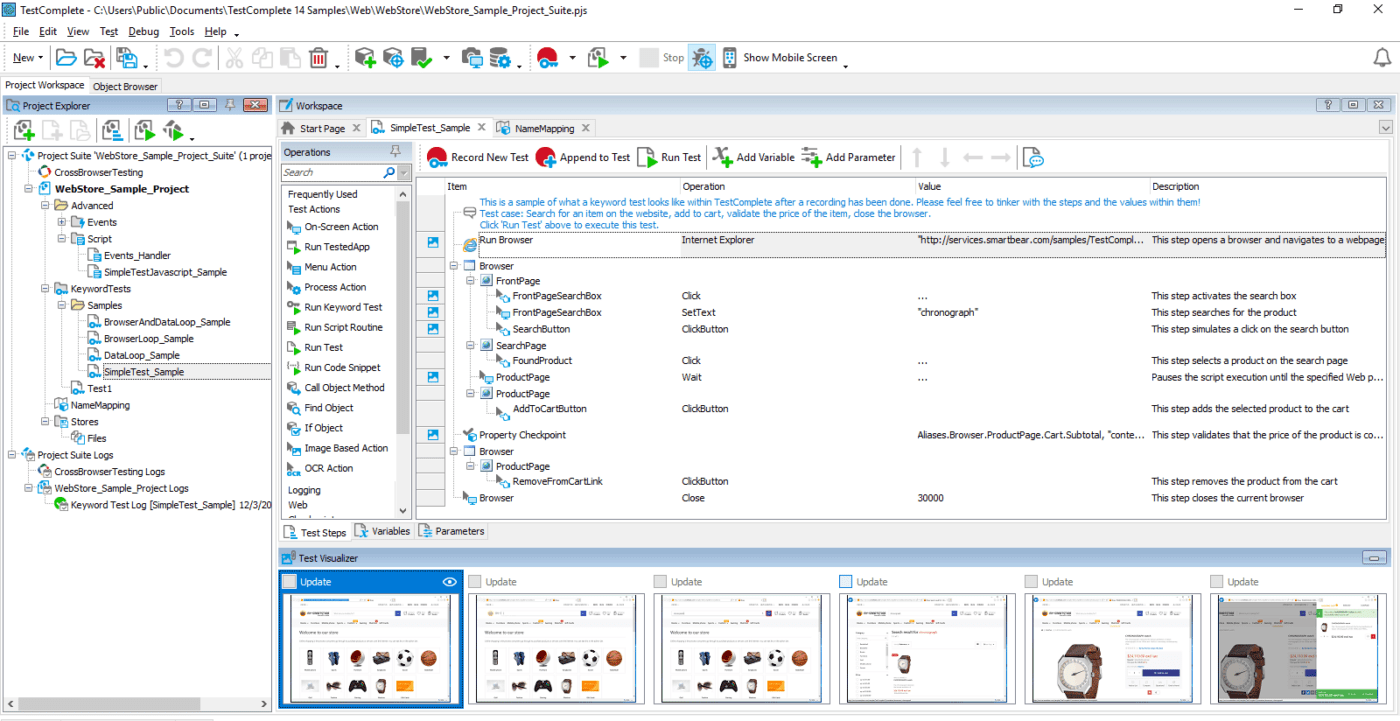
TestComplete is a versatile test automation tool that empowers teams to efficiently test web, desktop, and mobile applications across various platforms. It provides a robust solution for ensuring the quality and reliability of your software.
This testing tool enables users to generate detailed reports on test results, coverage metrics, and trends over time. These reports can also be easily shared with stakeholders and product managers.
TestComplete Base License
TestComplete Pro License
TestComplete Advanced License: Custom pricing
💡 Friendly Reminder: It’s important to stay updated on the latest trends and best practices in automation testing. Encourage your team to participate in training sessions, webinars, and community forums to enhance their skills and share knowledge.
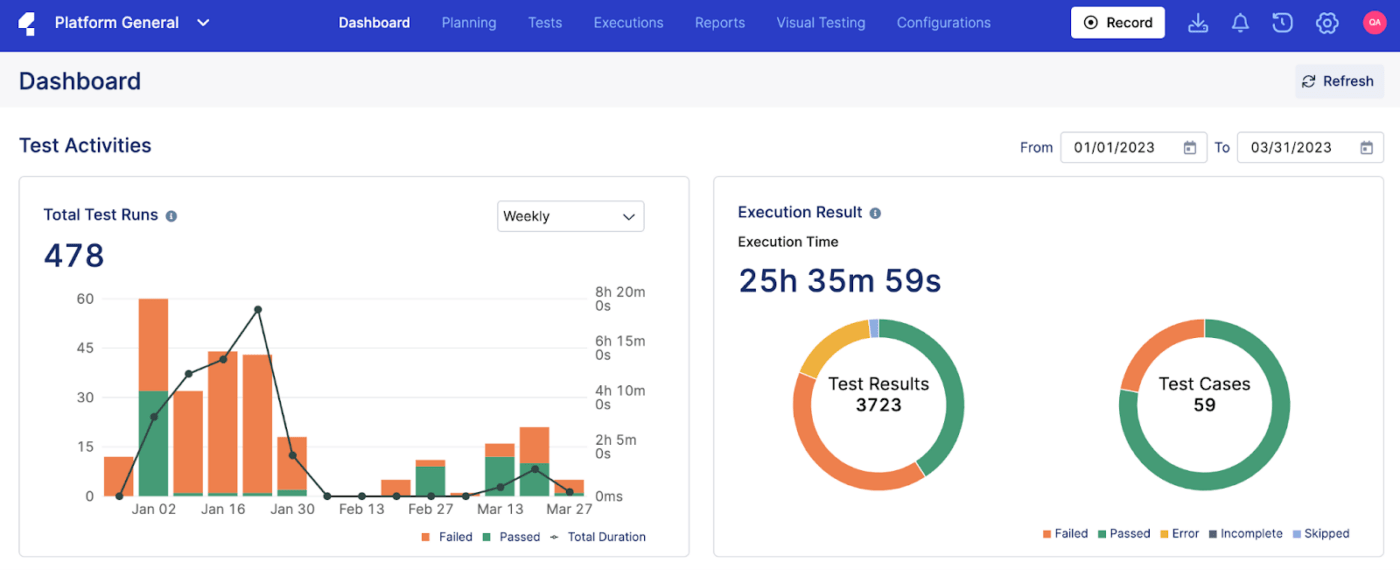
Katalon is a commercial test automation tool that supports web, API, and mobile testing. It offers a user-friendly interface and a comprehensive feature set, making it suitable for teams of all sizes.
The tool also fosters collaboration among team members by supporting version control systems like Git. This allows teams to track changes, share test scripts, and work on testing projects concurrently, enhancing overall productivity.
We’ve explored the top 20 automated testing tools, each offering unique features and capabilities to suit different testing needs. From Selenium’s versatility to Cypress’s modern approach and BrowserStack Automate’s testing abilities, there’s a tool out there to fit your specific requirements.
However, when it comes to finding a comprehensive solution that stands out from the rest, ClickUp emerges as the best option for teams seeking both testing and project management capabilities.
ClickUp integrates seamlessly with popular automation testing tools, enhancing your workflow with task management, Kanban boards, and pre-built templates. This allows you to manage your testing processes effectively while keeping the entire development cycle organized.
Sign up for ClickUp today and experience the future of software testing.
© 2026 ClickUp